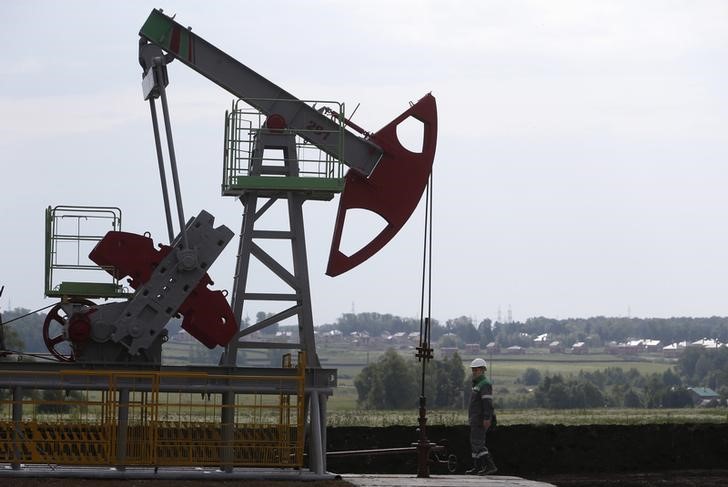(Adds details, quote, background, PMI)
By Leah Schnurr
OTTAWA, Sept 1 (Reuters) - The Canadian economy shrank again
in the second quarter, putting the country in recession for the
first time since the financial crisis, with a plunge in oil
prices spurring companies to chop business investment.
The confirmation on Tuesday of a modest recession will
figure heavily into the election campaign as Canadians head to
the polls Oct. 19 and poses a challenge to Conservative Prime
Minister Stephen Harper, who is seeking a rare fourth
consecutive term.
Still, there was a silver lining as growth picked up for the
first time in six months in June, underscoring expectations the
recession will be short-lived.
Harper was quick to downplay what some supporters and
economists have dismissed as a "technical" recession, pointing
to the upbeat June figures during a campaign stop. "The Canadian
economy is back on track," he said. ID:nL1N117118
But politicians from the opposition New Democrats and
Liberals said the numbers were evidence Harper's economic
policies were failing.
Economists mostly agreed the 0.5 percent pickup in June put
Canada on good footing for a better third quarter.
"Despite the technical recession materializing, it does look
like the Canadian economy is jumping back, is rebounding
strongly in the third quarter," said Derek Burleton, deputy
chief economist at Toronto-Dominion Bank.
The Canadian dollar initially rallied to a session high
against the greenback following the data before giving up ground
later in the day as oil prices fell. CAD/
<^^^^^^^^^^^^^^^^^^^^^^^^^^^^^^^^^^^^^^^^^^^^^^^^^^^^^^^^^
Graphic - Canada monthly GDP, exports to the U.S.:
http://link.reuters.com/jev87s
Graphic - Canada economic snapshot:
http://graphics.thomsonreuters.com/15/sc-canada/index.html
^^^^^^^^^^^^^^^^^^^^^^^^^^^^^^^^^^^^^^^^^^^^^^^^^^^^^^^^^>
The last time Canada was in recession was in 2008-09, when
the U.S. housing market meltdown triggered a global credit
crisis.
This time around, Canada has been primarily hit by the slump
in crude prices, with weakness concentrated in energy-related
sectors. Oil-exporting provinces like Alberta and Saskatchewan
have been particularly hard-hit.
Gross domestic product contracted at an annualized 0.5
percent rate in the second quarter, Statistics Canada said. That
was better than forecast, though revisions showed the first
quarter's contraction was steeper than first reported.
Two consecutive quarters of contraction are typically
considered the textbook definition of a recession. But some
economists have argued that such a definition is too narrow.
They note unemployment has remained relatively subdued at
6.8 percent, and housing markets outside of Alberta and retail
sales have been reasonably strong.
"The weakness in the first half of the year does appear to
be fairly narrowly based, with weakness in the energy sector
weighing on investment activity," said Paul Ferley, assistant
chief economist at Royal Bank of Canada.
The Bank of Canada has cut interest rates twice this year in
an effort to revive the economy, though most analysts expect it
to hold rates at 0.5 percent when it meets next week. BOCWATCH
While the price of oil and other natural resources have
weakened since June, many expect non-commodity Canadian exports
to benefit from a strengthening U.S. economy, which grew at a
3.7 percent clip in the second quarter. ID:nL1N1120QD
Canadian exports of goods and services rose modestly in the
second quarter, though business investment slumped and inventory
accumulation slowed.
Activity in the goods-producing industries declined 2
percent on a quarterly basis, with a 4.5 percent drop in the
mining, quarrying and oil and gas extraction component. But a
rebound in that same sector helped the economy perk up in June.
Separate data showed the manufacturing sector turned down
again in August, with the RBC Canadian Manufacturing Purchasing
Managers' index falling to a seasonally adjusted 49.4.
ID:nN9N10A02C
